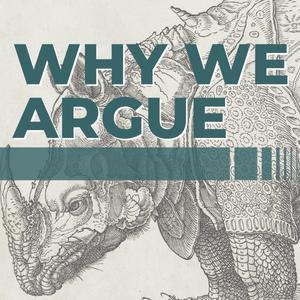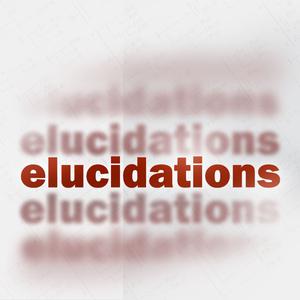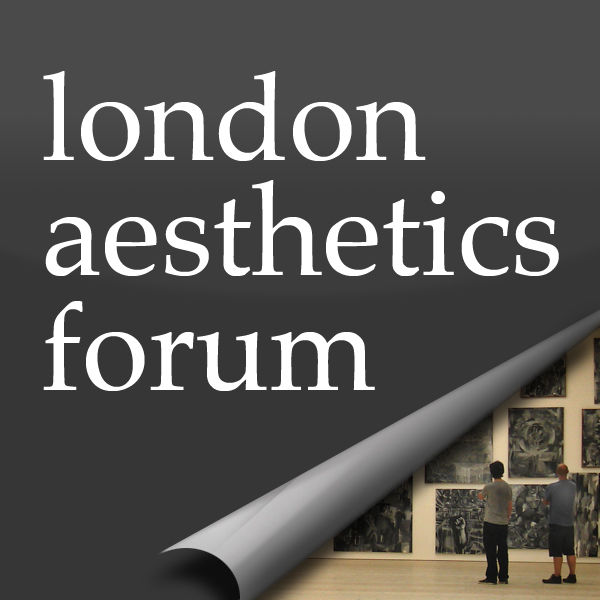
Proceedings of the Aristotelian Society
The Aristotelian Society
Hosting & publishing talks in philosophy since 1880.
- 53 minutes 58 secondsPeter Momtchiloff on Thirty Years at OUP
In this podcast, Aristotelian Society officers Dr Jess Leech and Dr Ellie Robson talk to Peter Momtchiloff - commissioning editor for philosophy at Oxford University Press from 1993-2023. Following three decades in this role, we get Peter's thoughts on what he has seen and learned from his time at OUP including questions like: What are some of your most memorable encounters in the job? What are some of the biggest changes you’ve witnessed over 30 years – for good and for bad – in philosophy? Are there any common struggles for first time authors? How should you approach publishers?
This podcast is an audio recording of an interview with Peter Momtchiloff - at the Aristotelian Society on 23rd July 2024.
3 January 2025, 3:36 pm - 53 minutes 58 secondsPeter Momtchiloff on Thirty Years at OUP
In this podcast, Aristotelian Society officers Dr Jess Leech and Dr Ellie Robson talk to Peter Momtchiloff - commissioning editor for philosophy at Oxford University Press from 1993-2023. Following three decades in this role, we get Peter's thoughts on what he has seen and learned from his time at OUP including questions like: What are some of your most memorable encounters in the job? What are some of the biggest changes you’ve witnessed over 30 years – for good and for bad – in philosophy? Are there any common struggles for first time authors? How should you approach publishers?
This podcast is an audio recording of an interview with Peter Momtchiloff - at the Aristotelian Society on 23rd July 2024.
2 January 2025, 5:14 pm - 51 minutes 43 seconds20/06/22: Samuel Scheffler on Partiality, Deference, and Engagement
The partiality we display, insofar as we form and sustain personal attachments, is not normatively fundamental. It is a byproduct of the deference and responsiveness that are essential to our engagement with the world. We cannot form and sustain valuable personal relationships without seeing ourselves as answerable to the other participants in those relationships. And we cannot develop and sustain valuable projects without responding to the constraints imposed on our activities by the nature and requirements of those projects themselves. More generally, we cannot engage with the world without meeting it on its terms, and we cannot meet the world on its terms without responding differentially – or displaying partiality – with respect to the objects of our engagement. Partiality is thus a byproduct of engagement. We cannot engage with the world at all without exhibiting forms of partiality.
Samuel Scheffler is University Professor in the Department of Philosophy at NYU. He works primarily in the areas of moral and political philosophy and the theory of value. His writings have addressed central questions in ethical theory, and he has also written on topics as diverse as equality, nationalism and cosmopolitanism, toleration, terrorism, immigration, tradition, death, and the future of humanity. Scheffler received his A.B. from Harvard and his Ph.D. from Princeton. From 1977-2008 he taught at the University of California, Berkeley. He is the author of six books: The Rejection of Consequentialism, Human Morality, Boundaries and Allegiances, Equality and Tradition, Death and the Afterlife (Niko Kolodny ed.), and Why Worry about Future Generations? He has received fellowships from the Guggenheim Foundation and the U.S. National Endowment for the Humanities, and he has been a Visiting Fellow of All Souls College, Oxford. His first book was awarded the Matchette Prize of the American Philosophical Association. He is a member of the American Academy of Arts and Sciences, a member of the Royal Norwegian Society of Sciences and Letters, and a foreign member of the Norwegian Academy of Science and Letters. He is currently at work on a book (tentatively) titled The Lives We Lead: Personal Attachment and the Passage of Time.
This podcast is an audio recording of Dr Scheffler's talk - "Partiality, Deference, and Engagement" - at the Aristotelian Society on 20th June 2022. This recording was produced by the Backdoor Broadcasting Company.
27 June 2022, 2:26 pm - 55 minutes 46 seconds6/05/22: Michael Della Rocca on Moral Criticism and the Metaphysics of Bluff
At a climactic—and, indeed, incendiary—moment in Bernard Williams’ classic essay, “Internal and External Reasons,” Williams says that those who advance moral criticisms by appealing to so-called external reasons are engaging in “bluff”. Williams thus alleges that condemning certain actions of others as somehow not only immoral, but also irrational or contrary to reason is nothing more than a kind of pretense. To say that a favorite pastime that so many of us happily engage in is empty, well—to use an American colloquialism—“them’s fightin’ words!” Indeed, in criticizing certain moral criticisms in this way, Williams’ words are fightin’ words about fightin’ words.
Why does Williams proffer these meta-fightin’ words? Readers—and indeed perhaps Williams himself—have struggled to articulate a precise argument for this claim that there are no external reasons and that those who try to invoke them in criticism of others are engaging in bluff. Thus, the force of Williams’ point has remained, at best, elusive, perhaps even to Williams himself.
In this paper, I first want to defend Williams’ claim that the appeal to external reasons is illegitimate. But I will do so from a perspective that is radically different from the ones usually at work in considering Williams’ position. Indeed, this perspective is one that may or may not (probably not!) be in the spirit of Williams’ actual reasons for rejecting external reasons, so it is important to keep in mind (as I will remind you from time to time) that I am not offering an interpretation of Williams here. The distinctive aspect of my approach is that I argue that a rationalist line of thought can support Williams’ claims. To bring out this line of thought, I will examine the metaphysical commitments of those who engage in what Williams calls bluff. I will then reject those commitments on powerful and widely popular rationalist grounds. I will, in other words, endeavor to support Williams’ charge of bluff by investigating what I call the metaphysics of bluff and by offering a rationalist critique of that metaphysics.
Michael Della Rocca is Andrew Downey Orrick Professor of Philosophy at Yale University. He has published widely in early modern philosophy and in contemporary metaphysics. His most recent book, The Parmenidean Ascent (Oxford 2020), defends a radical form of monism in metaphysics, philosophy of action, epistemology, and philosophy of language.
This podcast is an audio recording of Dr Della Rocca's talk - "Moral Criticism and the Metaphyscis of Bluff" - at the Aristotelian Society on 6th June 2022. This recording was produced by the Backdoor Broadcasting Company.
14 June 2022, 11:31 am - 54 minutes 17 seconds30/05/22: Miriam Schoenfield on Deferring to Doubt
When we doubt a belief, we examine how things look from a perspective in which that belief is set aside. Sometimes we care about what that perspective recommends and, as a result, we abandon the belief we've been doubting. Other times we don't: we recognize that a perspective in which a certain belief is set aside recommends abandoning it, but we go on believing it anyway. Why is this? In this paper, I'll consider and then reject some proposals concerning when to defer to the perspective of doubt. I'll argue that ultimately the question of whether to defer to doubt on any given occasion can’t be answered through rational deliberation aimed at truth or accuracy. If I’m right, this means that a certain challenge facing defeatist views about higher order evidence cannot be met: namely, providing a motivation for abandoning belief in cases of higher order evidence, but not becoming a global skeptic.
Miriam Schoenfield received her PhD from the Massachusetts Institute of Technology in 2012 and is now an Associate Professor of Philosophy at the University of Texas at Austin and an Affiliate Professor at the Dianoia Institute for Philosophy at Australian Catholic University. In addition to teaching at UT Austin, Miriam has served as a Bersoff fellow at New York University, an Associate Professor at MIT, and has taught philosophy in a number of different prison systems. She is the winner of the Marc Sanders Prize in Epistemology and the Young Epistemologist Prize. Her current research focuses on the ways in which Bayesian epistemology, and the aims of truth and accuracy, bear on debates about how to respond to evidence of our own irrationality.
This podcast is an audio recording of Dr Schoenfield's talk - "Deferring to Doubt" - at the Aristotelian Society on 30th May 2022. This recording was produced by the Backdoor Broadcasting Company.
7 June 2022, 1:06 am - 1 hour 12 minutes23/05/22: Alexander Mourelatos on 'Parmenides of Elea and Xenophanes of Colophon: the Conceptually Deeper Connections'
In the interpretation of Parmenides of Elea, there is a certain vulgate, one widely represented in general histories of philosophy and indeed assumed by philosophers broadly. The metaphysical tenor and thrust of the philosophy of Parmenides, according to this vulgate, is holistic monism: "all things are one," in Greek, hen to pan. As it may be recalled, Parmenides reached his metaphysical conclusions by initially reflecting on the language of to mē on or to ouk on (either of which may be translated as "what is not," or "non-being," or "not being"). Famously, or notoriously, he did rule that there is something conceptually and logically unacceptable in speaking or thinking of "not being." Ascribing that initial philosophical move to Parmenides is certainly beyond dispute. The vulgate, however, adds that he must also have reflected on the language of "different" (heteron) and "other" (allo); and then he proceeded to draw powerful metaphysical inferences in the following way: If, with respect to some A and some B, we are to hold that A is "different from" (or "other than") B, or vice versa, then we are committed to holding that "A is not B" and "B is not A." But if grasping "not-being" is inherently impossible, it should likewise count impossible that we should conceive more narrowly of "A's not being B," or of "B's not being A." Once distinctions of any sort are logically disallowed, the metaphysical conclusion seems inevitable: hen to pan, "all things are one." The epistemological corollary of holistic monism is that the world humans experience, fraught as it is with plurality and pervasively splintered by distinctions, is ultimately and fundamentally an illusion.
Alexander P. D. Mourelatos is Professor Emeritus in Philosophy and in Classics at The University of Texas at Austin, where in 1967 he founded and for twenty years directed, the Joint Classics-Philosophy Graduate Program in Ancient Philosophy. He is the author of The Route of Parmenides (1970; 2nd edn., 2008), and editor of The Pre-Socratics: A Collection of Critical Essays 1974; 2nd edn., 1993). Scholarly articles of his have appeared in journals in: philosophy; classics; ; history of science; and linguistics. On more than 170 occasions, he has delivered invited lectures at academic venues in North and South America, Europe, and Australasia. He received all his academic degrees from Yale University (Ph.D., 1964), and has been awarded two honorary doctorates in his native Greece (University of Athens, 1994; University of Crete, 2017). Students of his and colleagues have presanted him with two collections in his honor: in 2002, Presocratic Philosophy—Essays in Honour of Alexander Mourelatos; and in 2019, a special double issue of the periodical Philosophical Inquiry. He has held research appointments at: the University of Wisconsin, Madison; the Institute for Advanced Study (Princeton, NJ); the Center for Hellenic Studies (Washington, DC, Harvard University); Cambridge University; and the Australian National University.
This podcast is an audio recording of Dr Mourelatos's talk - "Parmenides of Elea and Xenophanes of Colophon: the Conceptually Deeper Connections" - at the Aristotelian Society on 23rd May 2022. This recording was produced by the Backdoor Broadcasting Company.
30 May 2022, 6:53 am - 46 minutes 21 seconds09/05/22: Mazviita Chirimuuta on Disjunctivism and Cartesian Idealisation
In this paper I give answers to two apparently unrelated questions and aim to convince you that these different concerns are, in fact, intertwined. The first question is, why is dualism so tenacious? The second is, what is really at issue in the debate between Burge and McDowell? Regarding the first question, various contemporary philosophers have cast Descartes as the originator of a pernicious idea about the radical difference between mind and body, an idea with weed-like tenacity, that many have attempted to dig out once and for all, but which always seems to grow back from fragments left in the soil. The problem with this diagnosis of dualistic thinking as the result of an individual philosopher’s influence is that it fails to consider that there may be broader and still active causes of its appeal. What is left unconsidered is the possibility that dualism is symptomatic of the wider tendencies of the scientific culture that Descartes, amongst others, represents, and that it persists not because of the long shadow of one philosopher, but because the essentials of this intellectual culture remain. In Sections 2 and 3 I will argue that this is indeed the case, and that the mode of thought at issue is to do with the dominance of scientific idealisations in our thinking about nature, including human beings and their minds.
In answer to the second question, Fish (2021) has examined the debate between Burge and McDowell over the alleged incompatibility of disjunctivism with the discoveries of perceptual science, and has compared it to a clash of Kuhnian paradigms. Miguens (2020) takes conflicting ideas about representations to be the main point of disagreement. I will argue instead that the point at issue is Burge’s acceptance, and McDowell’s rejection of the ‘Cartesian idealisation’ of mind as a self-contained system. Fish’s treatment of the controversy as a matter of competing research programmes, analogous to scientific ones, neglects the crucial particularity of the case, which is that McDowell’s philosophy of perception declines to define its explanatory objects in the way most conducive to scientific research. For this reason, there is more of a tension with science than McDowell admits; but as I will ultimately argue, this does not invalidate disjunctivism.
Mazviita Chirimuuta is a Senior Lecturer in Philosophy at the University of Edinburgh. Her current research interests include philosophy of perception, philosophy of neuroscience, and history of the mind/brain sciences. She received her PhD in Vision Science from the University of Cambridge in 2004. Following that she held post-docs in perceptual psychology, and in philosophy at Monash University and at Washington University in St. Louis. Between 2011-2020 she was Assistant then Associate Professor in History and Philosophy of Science at the University of Pittsburgh. Her book Outside Colour: Perceptual Science and the Puzzle of Colour in Philosophy was published by MIT Press in 2015, and she is currently working on a monograph under contract with MIT Press, The Brain Abstracted: Simplification in the History and Philosophy of Neuroscience. The new book examines the various strategies that neuroscientists have used to produce simple models of formidably complex neural systems. Given that simplified representations, such as computational models, require departure from literal truth about the brain, the book will consider how to best interpret such abstractions when doing naturalistic philosophy of mind.
This podcast is an audio recording of Dr Chirimuuta's talk - "Disjunctivism and Cartesian Idealisation" - at the Aristotelian Society on 9th May 2022. This recording was produced by the Backdoor Broadcasting Company.
16 May 2022, 8:45 am - 54 minutes 43 seconds25/04/22: Emma Borg on A Defence of Individual Rationality
Common-sense (or folk) psychology holds that (generally) we do what we do for the reasons we have. This common-sense approach is embodied in claims like “I went to the kitchen because I wanted a drink” or “She took a coat because she thought it might rain and she hoped to stay dry”. However, the veracity of these common-sense psychological explanations has been challenged by experimental evidence (primarily from behavioural economics and social psychology) which appears to show that individuals are systematically irrational – that often we do not do what we do because of the reasons we have. Recently, some of the same experimental evidence has also been used to level a somewhat different challenge at the common-sense view, arguing that the overarching aim of reasoning is not to deliver better or more logical decisions for individual reasoners, but to improve group decision making or to protect an individual’s sense of self. This paper explores the range of challenges that experimental work has been taken to raise for the common-sense approach and suggests some potential responses. Overall, I argue that the experimental evidence should not (currently) lead us to a rejection of individual rationality.
Emma Borg is Professor of Philosophy at the University of Reading and Joint Director of the Reading Centre for Cognition Research. She has held a number of visiting and advisory positions, including the White Distinguished Fellow for Philosophy at the University of Chicago, and sitting on the Executive Committee of the Mind Association. Currently she serves on the Advisory Board of the Leverhulme Trust, and (due to her work in business ethics) as an Independent Advisor to the Professional Standards Committee of Her Majesty’s Revenue and Customs (HMRC). In the past, her research has focused on philosophy of language, particularly the semantics-pragmatics interface, but she currently holds a Leverhulme Trust Major Research Fellowship for work exploring our understanding of human action.
This podcast is an audio recording of Dr Borg's talk - "In Defence of Individual Rationality" - at the Aristotelian Society on 25th April 2022. This recording was produced by the Backdoor Broadcasting Company.
2 May 2022, 10:09 am - 54 minutes 33 seconds21/03/22: Jack Spencer on Intrinsically Desiring the Vague
This paper is about whether it is rational to intrinsically desire the vague. A proposition is inconsequential if neither it, nor its negation is rational to intrinsically desire. The objects of intrinsic desire are propositions, and the contradictory of propositional vagueness is propositional precision. Every vague proposition is not precise, and every precise proposition is not vague. The question to be pursued thus can be posed as follows: is every consequential proposition precise?
Jack Spencer is Associate Professor of Philosophy at MIT. Before doing his PhD at Princeton, he studied philosophy and economics at University of Colorado, Boulder. Much of his research has been in metaphysics and decision theory. He is currently thinking about instantaneous rates-of-change, fundamentality, rationality and vagueness.
This podcast is an audio recording of Dr Spencer's talk - "Intrinsically Desiring the Vague" - at the Aristotelian Society on 21st March 2022. This recording was produced by the Backdoor Broadcasting Company.
23 March 2022, 11:12 am - 52 minutes 42 seconds07/03/22: Dawn Wilson on Reflecting, Registering, Recording and Representing: From Light Image to Photographic Picture
Photography is highly valued as a recording medium. Traditionally it has been claimed that photography is fundamentally a causal recording process, and that every photograph is the causal imprint of the world in front of the camera. In this paper I seek to challenge that traditional view. I claim that it is based on a ‘single-stage’ misconception of the process that defines photographs as mind-independent images and leaves no room for photographic depiction. I explain my objections to that view and propose an alternative, ‘multi-stage’ account of the process, in which I argue that causal registration of light is not equivalent to recording and reproducing an image. The proposed account can explain how photography functions as an exemplary recording medium, without supposing that every photograph is a mind-independent causal imprint of the world. Intervention or non-intervention by photographers is a more complex matter than the traditional view allows. Using the framework of the multistage account, I describe three different ways that photographic pictures can be produced.
Dawn Phillips studied at the University of Durham and wrote her PhD on Wittgenstein’s say-show distinction. She held philosophy positions at Kent, Cork, Southampton, Oxford, and Warwick. In 2011 she became a Lecturer in Philosophy at the University of Hull and, also, became Dawn Wilson.
Dawn has published on Wittgenstein early and late, particularly the Tractatus, including articles on logical analysis, clarity, symbolism, the picture theory of language and the expression of thought. With David Connearn, she co-authored an article about Wittgenstein’s House in Skjolden and co-ordinated an international letters campaign for the conservation of the house and its legacy.
She is interested in language, thought and image, particularly in art and aesthetics and the philosophy of photography. Her article, ‘Photography and Causation’, launched a field of debate known as the ‘New Theory’ of photography and was selected as one of twelve classic texts to celebrate the 60th anniversary of the British Journal of Aesthetics. She recently published ‘Invisible Images and Indeterminacy: Why we need a Multi-stage Account of Photography’ and she is co-authoring, with Laure Blanc-Benon, the photography entry for the Stanford Encyclopedia of Philosophy. She is writing a book titled Aesthetics and Photography for Bloomsbury, and articles on temporal representation, co-portraiture, and comparing photography with music.This podcast is an audio recording of Dr Wilson's talk - "Reflecting, Registering, Recording and Representing: From Light Image to Photographic Picture" - at the Aristotelian Society on 7th March 2022. This recording was produced by the Backdoor Broadcasting Company.
14 March 2022, 10:17 am - 53 minutes 22 seconds21/02/22: Andrew Huddleston on Aesthetic Beautification
Aesthetic beautification is a familiar artistic phenomenon: Even as they face death, heroes and heroines in operas still sing glorious music. Characters in Shakespearean tragedies still deliver beautifully eloquent speeches in the throes of despair. Even depicting suffering and horror, paintings can still remain a transfixing delight for the eyes. In such cases, the work of art represents or expresses something we would, in ordinary life, attribute a negative valence (suffering, horror, death, and the like), but it does so beautifully. Doubtless there is not a single explanation for what transpires in art of this sort or in our experience of it. With some aesthetically beautified art, its foremost goal might be giving aesthetic pleasure, and the beauty of the aesthetic form, even when depicting horrors, is in the service of this primary aim. In other art, the beautification might seek to be jarring and thought-provoking, highlighting a disconnect between the aesthetic frame and what is portrayed. These routes explain much of aesthetic beautification. But I am particularly interested in considering another more specific response still: finding ourselves somehow consoled by the beautification. I begin with some reflections on aesthetic beautification in general, and then turn to consider how beautification and consolation might be connected, and what to make of this.
Andrew Huddleston is Professor of Philosophy at the University of Warwick, where he is co-Director of the Centre for Research in Post-Kantian European Philosophy. He studied as an undergraduate at Brown and at Pembroke College, Cambridge, and did his PhD at Princeton under the supervision of Alexander Nehamas. Huddleston previously taught at Exeter College, Oxford and at Birkbeck College, University of London. He specializes in 19th and 20th Century European Philosophy, Aesthetics, and Ethics. His book Nietzsche on the Decadence and Flourishing of Culture (2019) was published by Oxford University Press, and he is presently at work on a book tentatively titled Art’s Highest Calling: The Religion of Art in a Secular Age.
This podcast is an audio recording of Dr Huddleston's talk - "Aesthetic Beautification" - at the Aristotelian Society on 21 February 2022. This recording was produced by the Backdoor Broadcasting Company.
28 February 2022, 10:11 am - More Episodes? Get the App
Your feedback is valuable to us. Should you encounter any bugs, glitches, lack of functionality or other problems, please email us on [email protected] or join Moon.FM Telegram Group where you can talk directly to the dev team who are happy to answer any queries.
 Forum for Philosophy
Forum for Philosophy
 SCI PHI Podcast
SCI PHI Podcast
 Why We Argue
Why We Argue
 Elucidations
Elucidations
 London Aesthetics Forum, at the Institute of Philosophy
London Aesthetics Forum, at the Institute of Philosophy
 Uehiro Centre for Practical Ethics
Uehiro Centre for Practical Ethics